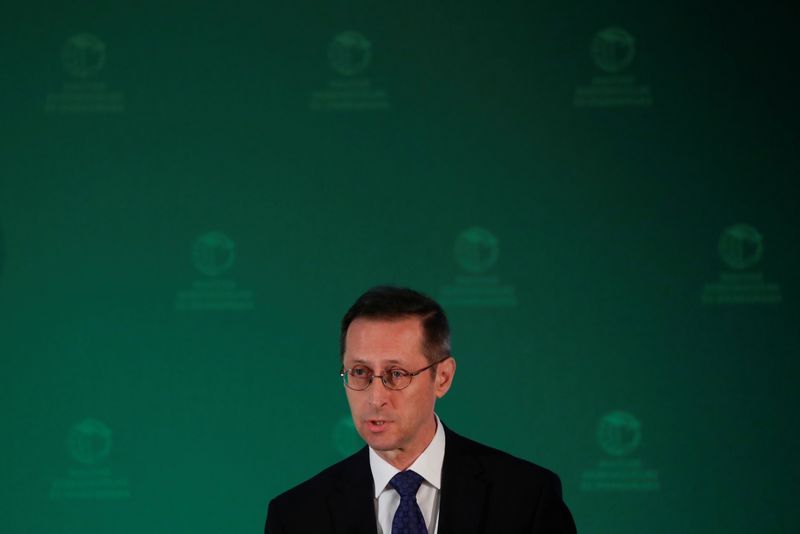By Anita Komuves
BUDAPEST (Reuters) -Hungary will allow companies to pay their taxes in euros or dollars, the government announced on Saturday, a move which analysts said could boost the country's reserves at a time its hard currency needs have soared.
Like other central European countries such as Poland, Czech Republic or Romania, Hungary is nowhere near adopting the euro, with Prime Minister Viktor Orban's government ruling it out in the foreseeable future claiming it would amount to a loss of economic policy sovereignty.
Hungary's move is similar to a plan announced by the Czech government last month to let companies pay taxes in euros from 2024, enabling the state to raise its borrowing in euros.
"If it is technically easier for companies to pay taxes in euros or dollars, then it is easier for the Hungarian state as well as import needs have skyrocketed," Orban's chief of staff told briefing on Saturday.
Gergely Gulyas said that Hungary's raw materials imports, paid for in foreign currencies, used to constitute 3.0-3.5% of total imports but have now reached 20-21%.
A jump in global gas prices pressured the forint's rate recently as it worsens trade balance in the country that is highly dependent on energy imports, traders and analysts have said.
Hungarian finance minister Mihaly Varga wrote on Facebook (NASDAQ:META) that the option would be available to all companies and would simplify corporate bookkeeping while ensuring taxes kept flowing to the state and the budget remained balanced.
The forint, central Europe's worst performing currency so far this year, hit a record low at 416.90 per euro earlier this month, also pressured by a lack of agreement with the European Union over recovery funds.
"Companies could save on conversion fees... and the government probably aims to boost fx reserves" David Nemeth, senior analyst at K&H Bank said.
"Even if there is an agreement with Brussels in the autumn, there will not be a significant amount of EU funds arriving by the end of the year, and this is an easy way to get foreign currencies without issuing fx bonds."
Hungary, a small export-driven economy, is home to manufacturing plants of large German carmakers including Audi and Daimler (OTC:DDAIF).

The government could also use taxes paid in euros or dollars to refinance bonds denominated in foreign currencies, Nemeth said.
"If more and more market participants are able to use only euros, then significance of the forint will be diminished... This also means getting closer to the eurozone without adopting the euro."